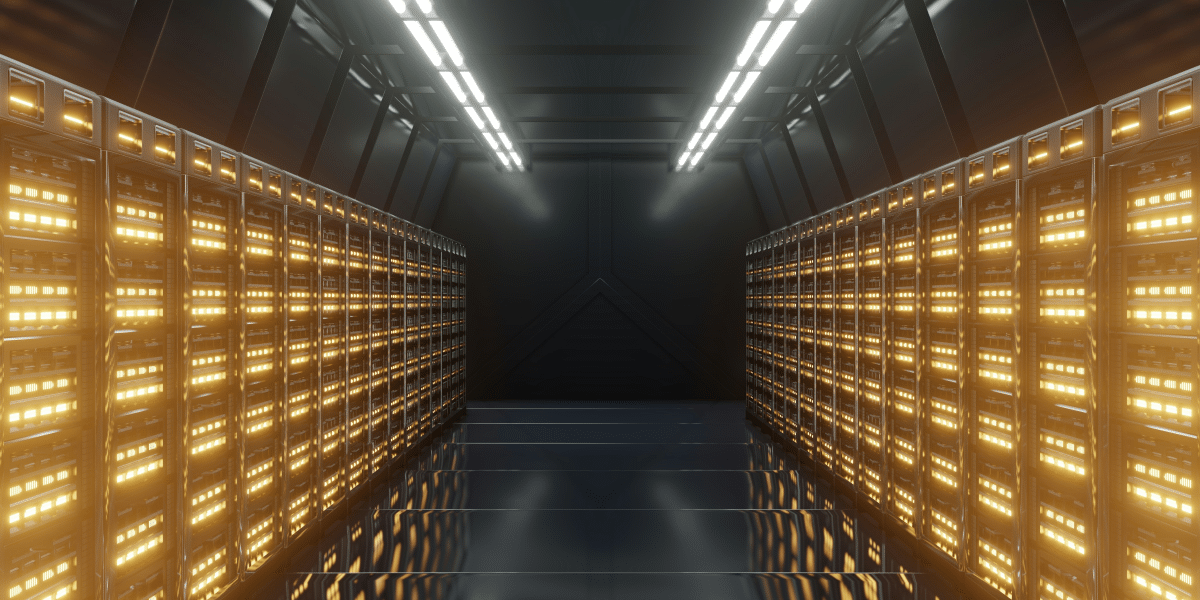If you’re planning to launch a growing, high-traffic website, you should consider a dedicated server. This type of hosting offers good performance, security, and reliability for your site.
As the name suggests, a dedicated server is exclusively available to a website or user, and all its resources, including CPU, RAM, storage space, and bandwidth, are completely under the user’s control.
The exclusivity of resources and complete control over the server are two key features that make a dedicated server an excellent solution for ensuring the reliability and speed of a website or application.
However, To choose a dedicated server for your business, you must consider various factors. Identifying your requirements, selecting a reliable provider, evaluating security features, and checking scalability and cost are among the most important.
By taking these few steps, you can make an informed decision about choosing the right dedicated server for your project.
What is a Dedicated Server?
A dedicated server is a hosting service where all the physical resources of a server are allocated exclusively to a single user or website, ensuring maximum performance, speed, and security. This setup allows users to manage server configurations, enabling customization of the operating system, software, and security settings to meet their specific needs.
Dedicated servers are suitable for websites with high traffic, resource-intensive applications, and businesses that require higher security. With dedicated resources, there’s no risk of performance issues caused by shared usage, making them reliable for mission-critical tasks like e-commerce, data processing, and enterprise applications.
How to Choose a Dedicated Server for Your Growing Needs?
Although a dedicated server can be a good option for many businesses, it’s important to consider several factors to find the right plan for your needs.
Look for a Reliable Provider
The first step in finding a dedicated server is to choose a reliable provider that aligns with your requirements. Providers with powerful plans like OperaVPS Dedicated Server offer robust hardware, 24/7 support, and flexible customization options, ensuring stable performance and long-term satisfaction.
So, Consider these key factors to make a confident and reliable choice:
Server uptime guarantees
The server’s availability, or uptime, is an important factor for ensuring consistent website access and a better user experience. It’s helpful to check the uptime percentage offered by the provider to ensure reliable service.
Variety and Adaptability of Plans
The provider should offer a variety of plans according to users’ different needs so that the user can easily find the right plan for him. Also, remember to check the possibility of upgrading or customization because this feature is considered a trump card for future business growth.
Hardware Quality
A reliable provider should aim to meet users’ hardware needs with up-to-date components, such as modern processors, fast disk storage, and high-speed networks.
Bandwidth
Bandwidth measures the data transferred between the server and site visitors in a given time. Higher bandwidth ensures your server can handle fluctuating traffic without slowing down or interruptions. Therefore, pay attention to this point when choosing a provider.
Support Availability
The provider’s support team should be available to assist with questions and address server-related issues, including hardware, software, and network concerns. Support through multiple communication channels such as online chat, phone, email, and more can help respond to users faster.
Now, open your browser and search for reputable providers to find an option for your business.
Identify Your Needs
After identifying reliable providers, the next step is to evaluate your website or application’s specific requirements. This helps you choose a server that fits perfectly.
To do this, you can consider the following key factors:
Site traffic volume: The amount of site traffic plays an important role in choosing hardware resources. If your site has high traffic or many users visit it simultaneously, your server will need more powerful resources to respond to them.
Application or service type: Determine what applications or services your server will run. Websites containing large databases, Content Management Systems (CMS), or data processing applications will need servers with high processing power and fast storage space (such as SSD or NVMe).
Storage: If your website or application deals with a lot of data and fast access to data is your priority, the server should have high and fast storage space.
Scalability: When assessing your needs, you should not only consider the current situation. If you want to have a growing business, choose a Reliable dedicated server whose resources can be expanded to continue your activities without disruption in the future.
Server location: If you are targeting users in a specific location and want to provide them with a smooth and fast experience, choose a server whose location is closer to that location.
You can consult an IT professional to identify your requirements more precisely.
Review Security Features
A highly visited website, like powerful hardware, needs high security to resist malware, hacker attacks, and other online threats.
After choosing a provider, you should also check its security features to ensure the security of your website and customers’ data.
Some of the most important security features are:
- Servers are in a secure facility with biometric access controls and fire suppression systems.
- Security features include firewalls and intrusion detection systems.
- Real-time traffic monitoring and multi-layered defense to protect the server from DDoS attacks.
- Data encryption using SSL/TLS certificates.
- 24/7 server monitoring and surveillance.
Of course, you shouldn’t rely entirely on the provider to maintain the security of your dedicated server. As the server owner, you should also help improve the server’s security by performing software updates, strong passwords, two-factor authentication, and regular data backups.

Look for Additional Features
By combining additional features with the basic features of a dedicated server, you can customize it according to your business needs and goals.
Features such as:
- Administrative control panel such as cPanel and DirectAdmin
- Monitoring and reporting tools on server performance
- Access management tools such as SSH Key Management and Two-Factor Authentication
- Automatic backups
- Support for downgrade and upgrade of resources
- Use of virtualization
- Redundant Power Supply
Help your dedicated server become more powerful and secure, and your website’s user experience will improve significantly.
Consider The Price
Once you have identified your requirements and found a provider who meets your needs, it is time to consider the costs.
First, you need to calculate the costs of the hardware you need, the security features, additional features, future hardware upgrades, etc., and then set aside a budget accordingly. When doing this research, take a long-term view and choose a plan that meets your current needs and is scalable and affordable in the long run.
By balancing cost and needed features, you can choose an affordable and compatible dedicated server that fits your business goals.
Why Choose Dedicated Hosting?
- High performance and speed due to exclusive access to all server resources
- Scalability to upgrade hardware resources for growth or peak traffic
- Security may be improved with single-user access to the server.
- Full customization of server settings based on requirements
- High reliability by not sharing resources with other websites
- Reduced latency and faster page loading times
- Access to a dedicated IP address
- Isolated and optimized environment for storing sensitive data
- Support services available to help with resolving issues.

When is it necessary to get a dedicated server?
You’ll know it’s the right moment to get a dedicated server when you see these signs:
- Launching high-traffic websites
- Implementing heavy-duty applications or websites such as artificial intelligence or big data analysis
- Significant increase in site traffic
- Supporting multiple websites or applications
- Need an isolated and customized environment to test and run different projects
- Hosting services that contain high-quality video or audio playback capabilities
- Need a server with high uptime and stable performance
- Need complete control to apply sensitive configurations and settings
- Need more security solutions to protect sensitive website or application data
- Need a dedicated environment to meet compliance standards like GDPR, HIPAA, or PCI DSS
Conclusion
Choosing a dedicated server for your business may significantly enhance the quality of your business’s online presence. Remember that a good server should balance resources, security, affordability, scalability, and support to suit your needs.
Published by Stephanie M.

















